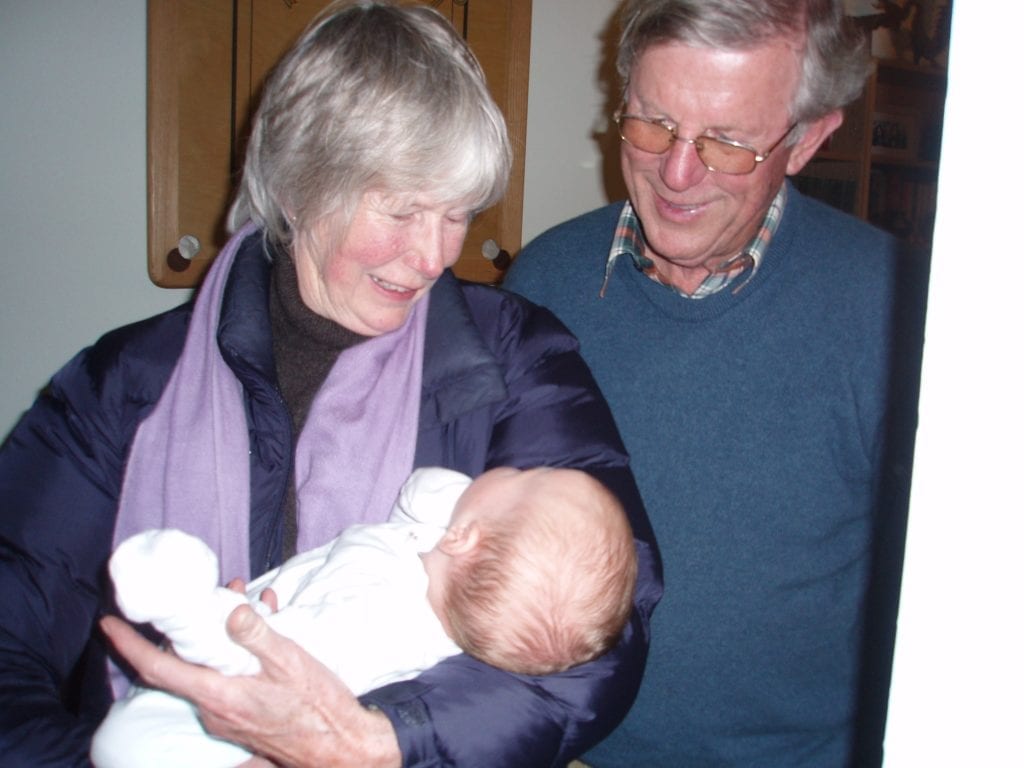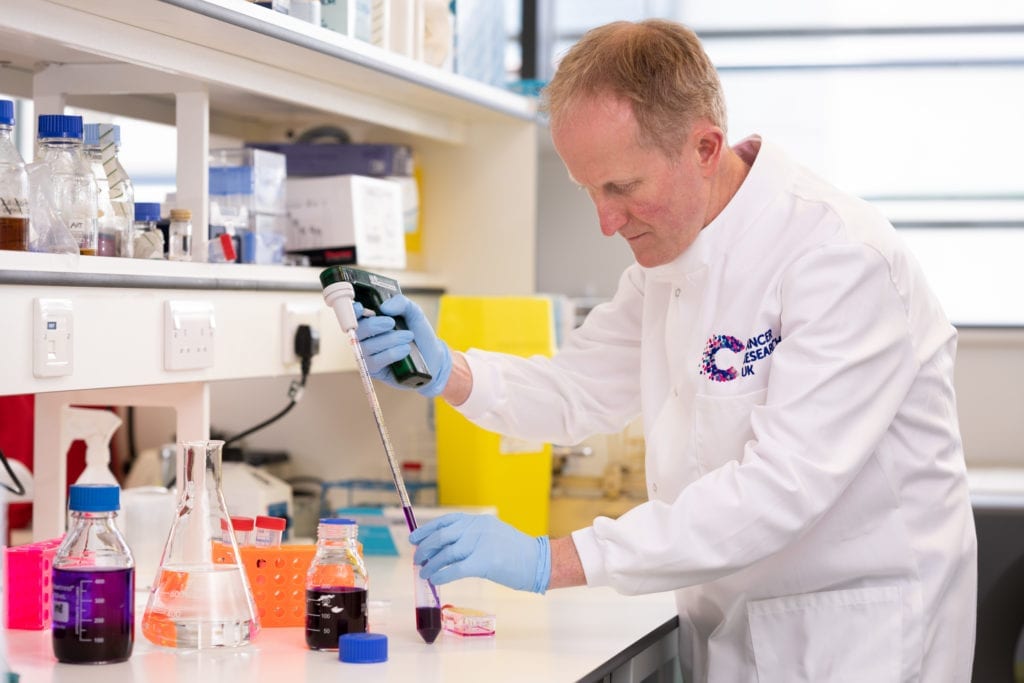A Cardiff scientist who lost both parents to cancer is rallying people across Wales to help tackle the devastating loss of funding for research into the disease, caused by the COVID-19 outbreak.
With much of his world-leading cancer research currently on pause, Professor Duncan Baird, leadfor Genetic and Genome Medicine at Cardiff University’s School of Medicine is backing an urgent new appeal from Cancer Research UK for donations to help get life-saving work back on track.

For this Penarth based scientist, cancer research takes on a personal significance after losing both his parents David and Rhona Baird to the devastating disease.
Professor Baird said: “They died rather brutally of cancer and it’s for people like them, that I want to make a difference. We can’t possibly hope to identify cures for cancer without understanding how cancer works.”
Professor Baird, who is funded by Cancer Research UK, is helping to highlight the threat the funding gap poses to future breakthroughs for cancer patients in Wales and across the UK.
Following the cancellation of fundraising events like Race for Life, the charity is expecting a staggering £160 million drop in income in the year ahead.
As a result, Cancer Research UK has had to make the difficult decision to cut £44 million in research funding, but this is likely to be just the beginning
The professor and his team, who have spent years working on world-leading research to find personalised treatments for cancer patients, are deeply concerned about how this will slow down their progress.
The cancer scientist’s work, which overall has spanned over two decades, could provide important new tests to predict the course of some cancers and their progression, including breast cancer and blood cancers such as chronic lymphocytic leukaemia and multiple myeloma.

His research specifically considers the correlation between telomeres – protective structures that sit at the end of our DNA to prevent it from being damaged – and how quickly cancer develops.
Professor Baird’s team of Cardiff researchers has already shown that cancer in people with very short telomeres is likely to progress much faster.
Professor Baird explained: “Telomeres act in a similar way to the protective plastic tips on the end of shoelaces, preventing chromosomes ends from ‘fraying’.
“Telomeres shorten every time a cell divides to create a new cell and eventually the chromosome ends are left exposed – leading to extensive DNA damage that speeds up cancer progression.
“Knowing the speed of cancer progression can help doctors decide on more appropriate treatment measures for the patient.”
He hopes the research could eventually mean that patients undergo telomere length tests at the time of their cancer diagnosis to determine which treatments would work best for them. This could lead to patients receiving more effective treatment more quickly. It could also help reduce the risk of harmful side effects.
Professor Baird has already been funded by Cancer Research UK for 15 years. The charity’s science committee recently noted his work to be “outstanding” and at the forefront of cancer research.
COVID-19 forced the professor and his team to hang up their lab coats during lockdown with two members of the team being furloughed. Despite this, the remaining members of the team have been able to carry on the fight against cancer from home, analysing their data, writing up results for publication and planning new experiments.
Three months on, this vital work is slowly re-starting – but with new safety measures in place in the lab and complex experiments to recover, it could take months to get back up and running at full speed.
And now with more cuts likely to follow, Professor Baird is deeply concerned about the heart-breaking fallout for patients.
The issue is powerfully brought to life in a new TV appeal film. It shows a cancer patient on the verge of finding out whether her treatment has been successful, when the video pauses at the critical moment.
Commenting on the film Professor Baird said: “The message is clear, to save lives tomorrow Cancer Research UK needs the public’s support today.
“Research into cancer is facing a crisis where years and even decades worth of work could be lost and progress stalled for years to come. Every day and every pound counts, so I hope people in Wales will give what they can to help us keep making new discoveries”
“As researchers our mission is clear – beat cancer. And with the impact of COVID-19 being keenly felt by people with the disease, it’s never been more important.”
Cancer Research UK’s work into the prevention, diagnosis and treatment of cancer has been at the heart of progress that has seen survival in the UK double in the last 40 years.
Thanks to the generosity of its supporters, the charity currently funds around 50 per cent of all publicly funded cancer research in the UK.
Cassandra Miles, Cancer Research UK spokesperson for Wales, said: “We’re grateful to Professor Baird for helping to underline the stark reality of the current situation.
“With around 19,500 people diagnosed with cancer every year in Wales*, we will never stop striving to create new and better treatments. But we can’t do it alone.
“Whether they donate, sign up to Race for Life at Home or shop at our recently re-opened stores – with the help of people in Wales we believe that together we will still beat cancer.”
Cancer Research UK was able to spend nearly £4 million in Wales last year on some of the UK’s leading scientific and clinical research.
Donate now at cruk.org/give.
